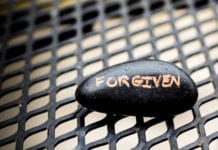If you were to charge people to come to Sunday School training do you think you would have more people come, or less?
This was the big surprise and learning for me this year. Because of the economy, my speaking schedule is down considerably. Churches and Associations are being hit hard by the economy. Many are having to lay off staff. (I have a few resumes from friends if you are looking.) Long before they lay off staff they will quit hiring outside speakers to come in and do training. This is true, even though training is constantly shown to correlate with church growth.
So I offered a new plan. I have adjusted it a bit, so let me talk about how it is now. Rather than charging the host my honorarium, I charge the host a much smaller deposit. Thirteen years on the road has taught me bad things happen when the host does not put down a deposit. I have very few cancelations since I started requiring non-refundable deposits. They don’t walk away from the meeting due to a scheduling conflict when they have some skin in the game.
Most of the cost of the event is paid for not by the host church or Association but by the individuals who attend. The current plan calls for individuals to pay $20; $30 for married couples attending together. The host gets $5 of this back to help cover their expenses. If all goes well, it should be free to the host.
We live in an era–and we may be in this era for some time to come–where churches no longer have $1500 or so to pay the expenses to hire an outside speaker to come in and do training. But, people still have $20 to spend on a night of training–if they think it is valuable. More on that later.
The big question is this: how will charging for the event affect attendance? Will people not come if they have to pay for it?
Here is the big surprise: more came. Several of my DOMs told me, “This is the best attended event we have had in years.” I read a book recently that explained why. Here is an excerpt:
Look, for example, at this witty little experiment. Baba Shiv, a neuroeconomist at Stanford, supplied a group of people with Sobe Adrenaline Rush, an “energy” drink that was supposed to make them feel more alert and energetic. (The drink contained a potent brew of sugar and caffeine that, the bottle promised, would impart “superior functionality.”) Some participants paid full price for the drinks, while others were offered a discount. After drinking the product, participants were asked to solve a series of word puzzles. Shiv found that people who’d paid discounted prices consistently solved about 30 percent fewer puzzles than the people who’d paid full price for the drinks. The subjects were convinced that the stuff on sale was much less potent, even though all the drinks were identical. “We ran the study again and again, not sure if what we got had happened by chance or fluke,” Shiv says. “But every time we ran it, we got the same results.”
Why did the cheaper energy drink prove less effective? According to Shiv, consumers typically suffer from a version of the placebo effect. Since they expect cheaper goods to be less effective, they generally are less effective, even if the goods are identical to more expensive products. This is why brand-name aspirin works better than generic aspirin and why Coke tastes better than cheaper colas, even if most consumers can’t tell the difference in blind taste tests. “We have these general beliefs about the world-for example, that cheaper products are of lower quality-and they translate into specific expectations about specific products,” said Shiv. “Then, once these expectations are activated, they start to really impact our behavior.” The rational brain distorts the sense of reality, so the ability to properly assess the alternatives is lost. Instead of listening to the trustworthy opinions generated by our emotional brains, we follow our own false assumptions.
Jonah Lehrer. How We Decide (Kindle Locations 1694-1704). Kindle Edition.
The research indicates that if we could test it, we would like find that people get more out of meetings they pay for. What we seem to know now is that more people tend to show up.
I’d like to invite you to consider hosting a meeting under the new plan. If it goes well, it will be free for you the host church or Association. For details, see http://www.joshhunt.com/conference2.htm










